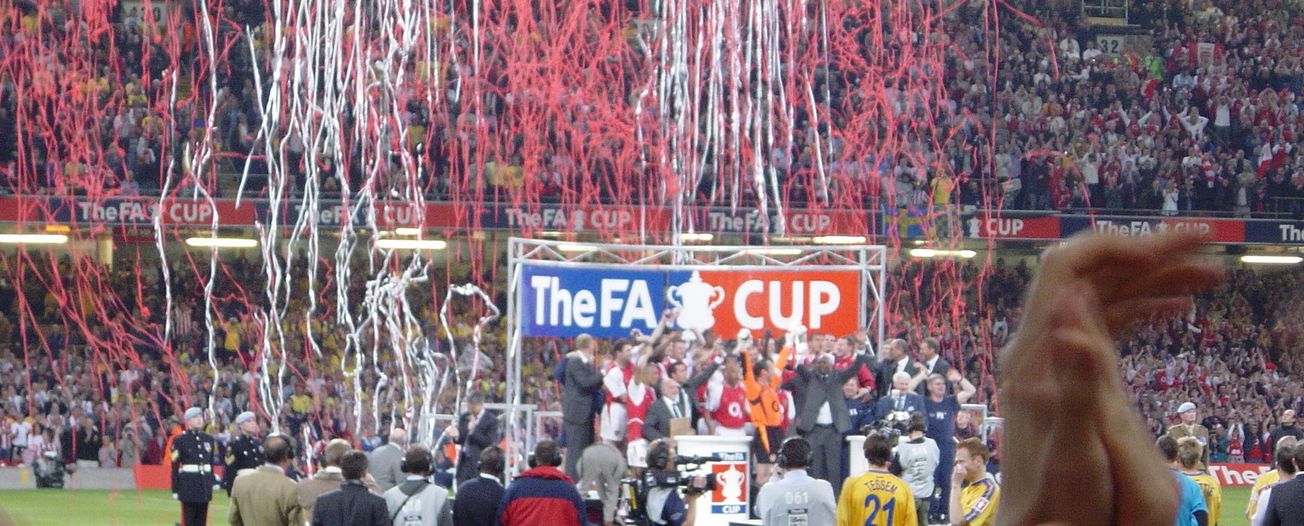By Luke Sansom, fourth year Politics and French student
First held in the 1871-1872 season, The FA Cup is both the oldest and the most prestigious domestic competition worldwide.
Open to any club in English football’s top 10 tiers and featuring a total of 14 rounds, it offers clubs a genuine opportunity to embark upon memorable, giant-killing cup runs, and for players to go down in football folklore.
Over the years the FA Cup has enthralled football fans across the country, producing countless shocks and triumphs that will live long in the memory.
Perhaps its greatest feature is the famous ‘Cupset’, where David and Goliath are pitted against each other, and the lowly minnows emerge victorious against opponents in the upper echelons of the football pyramid.
Biggest shock ever in my lifetime in fa cup Bradford City 2-0 down win 4-2 , what's yours?
— Robbie Savage (@RobbieSavage8) January 24, 2015
5 of the greatest Cupsets:
- Chelsea 2-4 Bradford, 2015. League 1 Bradford came from 2-0 down to topple Chelsea at Stamford Bridge.
- Sutton 2-1 Coventry, 1989. Non-league strugglers Sutton triumphed against 1987 winners Coventry.
- Burnley 0-1 Lincoln, 2017. Lincoln became the first non-league team to reach the quarter finals in 103 years, defeating Premier League side Burnley.
- Hereford 2-1 Newcastle, 1972. After earning a replay, non-league Hereford defied the odds with a 2-1 victory over Newcastle.
- Liverpool 0-1 Wimbledon, 1988. A Lawrie Sanchez winner fired Wimbledon’s ‘Crazy Gang’ to a stunning victory in the FA Cup final.
However, in more recent years, fans, pundits and all of those in football have lamented that the magic of the cup is fast disappearing.
Weakened starting XIs, declining attendances and certain managers’ visible apathy towards the FA Cup have all contributed to the idea that this once great tournament is simply not the same anymore.
Stewards and police confiscated the BT SPORT: FA CUP KILLERS flag on the instruction of the broadcaster. Freedom of expression and freedom of speech is clearly not alive and well at Pay TV matches. #DontMugOffTheFans pic.twitter.com/lLXrx9t0Ir
— THST (@THSTOfficial) January 4, 2019
It is no longer rare to see managers of Premiership, and even Championship clubs, in particular, making eleven changes to their side, or to see stadiums more than half-empty for an FA cup-tie.
The accusation levelled is that the top teams no longer take the FA Cup seriously. It is argued that with ever-increasing Premier League TV rights deals and prize money reaching staggering and astronomical levels, managers have no choice but to prioritise the goal of maintaining or achieving their status in the top division.
Back in 2014, then Aston Villa manger, Paul Lambert, suggested that top-flight bosses could do without the competition.
Other critics argue that the recent trend was started in 2000, when Manchester United famously pulled out of the competition in order to focus their attentions on the World Club Championship in Brazil and to help England with their bid for the 2006 World Cup.
Ultimately though, what matters is not the causes but the response to the perceived declining importance of football’s greatest domestic tournament.
Proposals and suggestions for restoring the glory of the cup have been wholesale and fiercely debated during recent seasons.
Clearly the FA Cup will never be able to compete with either the Premier League or the Champions League in terms of prize money, so officials need to find other ways to re-incentivise the tops teams who are not taking the competition seriously.
In an already-packed fixture list, cup ties and replays can be a manager’s worst nightmare, forcing them into making radical changes to their team.
While they provide lower league clubs with the opportunity of immense financial reward, and a memorable away-day against decorated opponents, chiefs should strongly consider scrapping replays between teams of the same division altogether.
Not hosting both semi-finals at Wembley would surely be another way of re-establishing the importance of the FA Cup. Gone are the days when the final attracted attention across the country and indeed across the globe with a compelling day of build-up.
The FA Cup died when @ManUtd refused to defend their title two decades ago. Top teams stopped taking it seriously after that.
— Piers Morgan (@piersmorgan) January 6, 2019
Only way to restore its prestige is to give the winners 4th Champions League place. https://t.co/MqHYigX1Zl
Reserving the use of Wembley for just the final would help to reinstate the grandeur and spectacle of the occasion. There is also a need to re-engage supporters of the clubs who no longer take the competition seriously, and cheaper tickets at every stage would certainly add an edge to the tournament.
There are various other possibilities, all of which are open to criticism, but it is essential that the FA make changes and work towards a solution.
You only have to look back at the thrilling cup runs of non-league Sutton and Lincoln back in 2017 to see that the magic of the cup remains as strong as it ever did for the lower-league teams. The aim of football officials must be to win back the top teams.
Every year, the FA Cup provides players and fans alike with astonishing moments that go down in their club’s history. We must continue to relish these occasions it produces, and hope that a remedy is found to buck the trend.
Featured image by Flickr / seanbjack
What do you think should be done to re-establish the reputation of the FA Cup? Let us know your thoughts!









